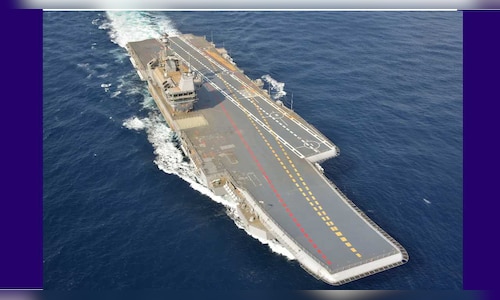At a news conference on Monday, White House spokesman John Kirby said the United States and its allies “need to be prepared for what could be a significant set of attacks.”
Israel believes that an attack by Iran and its allies is “increasingly likely,” Kirby said. “We share those concerns.”
The implications were underlined by Fitch Ratings’ decision to downgrade Israel’s sovereign debt rating by one notch, from A+ to A, while maintaining a negative outlook and citing “continued war” and geopolitical risks.
The White House comments were the strongest indication yet that officials expect an attack to happen at any time. Some have expressed puzzlement that it has not happened yet, given that Iran has been threatening retaliation for days after the assassination of Hamas leader Ismail Haniyeh in Tehran — a killing for which Israel has yet to claim credit.
Meanwhile, allies are doing everything they can to prevent an Iranian attack, which they fear could trigger a wider regional war. That effort has focused on trying to inject new life into ceasefire negotiations over the Gaza war between Israel and Hamas.
The last time Iran attacked Israel, in April, it fired hundreds of ballistic missiles and drones, almost all of which were intercepted. Casualties were limited and Israel responded at the time with a limited drone operation, but decided not to escalate the offensive.
Authorities fear it could be different this time, especially if an Iranian attack leaves many dead or wounded.
In a joint statement Monday, President Joe Biden and the leaders of France, Germany, Italy and the United Kingdom backed efforts to complete a ceasefire agreement between Israel and Hamas and secure the release of hostages held by Hamas. They called for “the unrestricted delivery and distribution of aid” and supported “Israel’s defense against Iranian aggression and against attacks by Iranian-backed terrorist groups.”
UK Prime Minister Keir Starmer has spoken to Iranian President Masoud Pezeshkian, calling on him to refrain from attacking Israel and “adding that war is in no one’s interest,” according to a Downing Street spokesman.
In a revelation that could add new complications to negotiations for the hostages’ release, Hamas, which is listed as a terrorist group by the United States and the European Union, said Monday that two of its militants killed one hostage and seriously wounded two female hostages in separate incidents. It said in the statement that Israel’s airstrikes in Gaza provoke life-threatening reactions among the hostages.
The United States, Qatar and Egypt have called for a new round of talks on August 15, but Hamas has rejected the proposal, saying discussions should focus on implementing previous plans.
Israel has agreed to attend the talks. One Israeli official said they would be held in Doha and would focus on whether Hamas might budge on the truce’s terms. Another Israeli official said Arab mediators would meet with Hamas afterward if the group boycotted the session. Israel has not budged on its main terms, said the officials, who spoke to Bloomberg News on condition of anonymity given the sensitivity of the issue.
On Sunday, the Pentagon announced it was sending even more forces to the region, including the USS Georgia, a submarine equipped with more than 150 Tomahawk missiles. That in itself is an unusual show of force, given that the United States rarely reveals the movements of its nuclear-powered submarine fleet, and Tomahawks have been used to attack land targets in the region in the past.
Defense Secretary Lloyd Austin also ordered the USS Abraham Lincoln aircraft carrier and its strike group to speed up their arrival in the region. The ship is carrying F-35 fighter jets, which could help strike targets and intercept any Iranian attacks.
Iran’s acting Foreign Minister Ali Bagheri Kani has called an attack on Israel “inevitable,” Italian Foreign Minister Antonio Tajani told Italian news channel TG4.
Tajani said any escalation would be a mistake and Iran should first consider ceasefire negotiations.
“But it seems to me that the Iranians are in a very difficult position,” he said.
Disclaimer:
The information contained in this post is for general information purposes only. We make no representations or warranties of any kind, express or implied, about the completeness, accuracy, reliability, suitability or availability with respect to the website or the information, products, services, or related graphics contained on the post for any purpose.
We respect the intellectual property rights of content creators. If you are the owner of any material featured on our website and have concerns about its use, please contact us. We are committed to addressing any copyright issues promptly and will remove any material within 2 days of receiving a request from the rightful owner.

